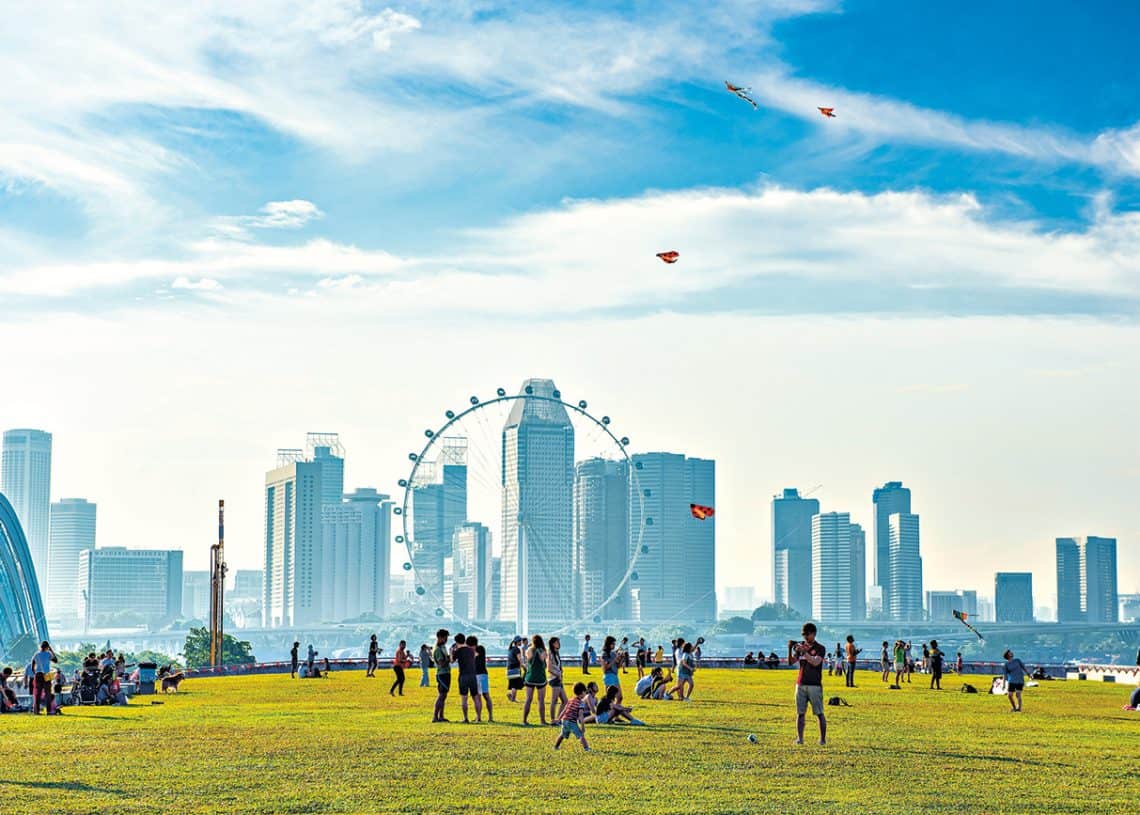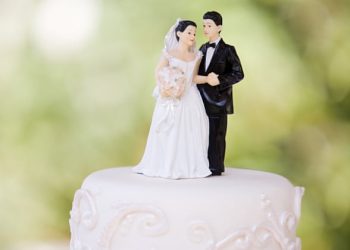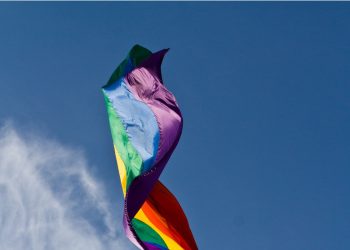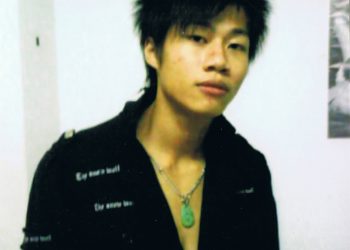I kept track of the protest in Hong Lim Park the best I could, devouring updates from Twitter, Facebook and WhatsApp chat messages. I had mixed feelings about the event, but was still interested because it was different from many of the other protests I’ve witnessed at Speakers’ Corner.
So many people participated, and they were so angry. It was a direct protest against government policy – usually a big “no no” in Singapore – and yet people were frustrated enough to let go of their fear to attend on a rainy day. It was significant.
But there were also things that rang alarm bells, things that could all-too-easily lead the movement into ugly territory. Comments and placards swirling around the protest with messages like “let’s take back Singapore for its people” or “Singapore for Singaporeans”, and the playing up of nationalistic ceremonies like patriotic songs and the national anthem. The speeches by the speakers. All appealed to a sense of unity and a shared identity. WE are Singaporean.
But, who or what is a Singaporean?
It’s an old one, but this post in TR Emeritus attempts to offer three factors that make up a unifying Singaporean identity: English as the lingua franca, British institutions/heritage and meritocracy.
It’s an argument that can be quickly and easily unravelled.
Although English has been used as the language of governance, business and education in Singapore, not everyone in Singapore speaks English. And I’m not even talking about immigrants; I’m talking about older Singaporeans who may never have had the opportunity to learn English, or prefer to continue using their native languages and dialects. Sure, one day, after their passing, Singapore will be made up of citizens who have been English-educated. But right now these non-English-speaking citizens still live among us, and are accepted as Singaporeans. To say that English is a factor that unites us all is to ignore and exclude generations of people.
The post’s assertions about Singapore’s ‘British institutions’ and ‘heritage’ is both nonsensical and problematic. We may have inherited or based many of our institutions upon British systems due to our colonial history, but so what? This doesn’t make us more British-like, or bind us with other ex-colonies like Australia or New Zealand, as the writer argues.
In fact, it doesn’t even make us like Britain. I’m saying this as someone who is currently living and studying in the UK; whenever I tell people here about Singapore’s systems and practices, it is not something that they recognise. Our education system is different from the one in Britain, not to mention those in Australia and New Zealand. We still maintain laws – like the death penalty and Section 377A – that Britain has got rid of long ago. If the writer is trying to say that we still share cultural/social similarities with Britain because of inherited institutions, it’s probably not the Britain of today that he/she is referring to.
What’s also telling is that the writer says that we have problems relating to immigrants from China because they don’t share the same “British heritage” as we do. He/she also says that this is why we find it easier to settle down in Australia, New Zealand or Canada; presumably because this shared “British heritage” allows us to identify with people in those countries.
But what about India and Bangladesh? Going by the writer’s logic, they should also share the same “British heritage”. In fact, Singapore’s Penal Code is described as a “re-enactment of the Indian Penal Code.” So why aren’t we buddy-buddy with the Indian and Bangladeshi migrants among us? Why do they still get looked down upon, subjected to racism, abused and exploited in their jobs?
Why does the writer find it so easy to relate us to predominantly white British ex-colonies, yet conveniently forgets the Asian ones?
The writer’s final factor is “meritocracy”. It’s a great idea, of course: you get rewarded based on your work, rather than who you are. Everyone gets an equal chance.
But it’s a joke. Especially in Singapore.
We have been told that meritocracy is a core value of our society. This has led us to believe that if we work hard, we will do well. But there is a flip-side to this logic: if hard work inevitably leads to good results because of meritocracy, then if you don’t do well, it must mean that you aren’t working hard, and therefore deserve what you’ve got!
This logic has led to a lack of sympathy or empathy for the lower income groups in Singapore; we believe that they must be lazy and undeserving, because if they weren’t, if they worked as hard as us, then they’d be like us, wouldn’t they? But in this line of thinking lies a complete lack of awareness of privilege and opportunity. Some people do get a head start in life, whether it’s because they have access to things like enrichment programs or extra tuition, or whether it’s simply because they don’t have to struggle as much to make ends meet, and can therefore focus completely on their studies and work.
An unquestioning spouting of ‘meritocratic’ values that doesn’t take these factors into account is not only pointless, but also hurtful in the long run.
So we’ve established that the Singaporean identity is not what the TR Emeritus post said. But that only brings us back to the original question: what is the Singaporean identity?
I’ve been researching and thinking about this a lot recently, mostly because I am working on this issue (among other things) in my Masters dissertation, but also because it’s something that interests and affects me.
Identity politics isn’t just a Singaporean thing; it’s debated, discussed and fought over in societies and communities all over the world. So far a lot of my reading has had to do with grappling with in-groups and out-groups. In other words, our arrival at a unifying identity has as much to do with what we are not as to do with what we are. We define ourselves against those who we see as different. Our efforts to not be ‘them’ encourages us to constructs homogeneity for ‘us’.
But this homogeneity is false. Anyone can tell you that Singapore is not a homogeneous society. At the most basic we have different racial and religious groups, but those aren’t the only differences I’m referring to. There are also differences in language, in opinion, in habits, in tastes and preferences. In short: there are millions of different people holding Singaporean passports, and each person will have a different definition of what makes a Singaporean, according to his or her own choices. A person who loves chye tow kway might say eating chye tow kway is typically Singaporean, ignoring all those who can’t stand the stuff. Someone else might claim, as I once did, that Singlish is integral to the Singaporean identity. That person would be wrong, just like I was.
Of course, there are things that many of us might share, customs or habits that we may practice in Singapore unlike those practiced by people elsewhere. But it doesn’t automatically follow that these things become rules or criteria that every Singaporean must adhere to before being recognised as a ‘true Singaporean’. These things just are. My meeting a Singaporean who also speaks Singlish and likes chye tow kway isn’t any more significant than my meeting a British person who also watches Doctor Who and eats fish n’ chips. People have things in common. It happens. That’s it.
I’m not saying that those who are upset about threats to the Singaporean identity are stupid or dreaming. I’m just saying that we should be aware that this identity has been constructed and (to borrow the language of Benedict Anderson) ‘imagined’. We feel the threat just like a small child feels afraid of the bogeyman under the bed. But like the bogeyman, the threat isn’t real. There is no one maliciously trying to attack who we are, because there is no homogeneous ‘we’ in the first place.
There is still a lot to be angry about. We live under a government that doesn’t seem to think of its citizens as anything more than pawns in an economic game. Their policies don’t just hurt an imagined identity; they hurt us, our parents, our grandparents and our children. We’re hurt and angry not really because some identity conjured in our heads is being attacked, but because it is getting harder and harder to live in a pressure cooker environment that makes us tired, stressed and anxious all the time. We’re finding it increasingly difficult to recognise our home in Singapore not because of the foreigners who suffer alongside us in the crowded trains and buses, but because our policymakers have led Singapore towards an overly-competitive environment where the quantity of money in our banks is prized over the quality of our lives.
Basing our arguments on ‘identity’ may feel good, but is ultimately building on shaky ground. There is no definable identity that we can really fight for; identity can be disputed from person to person and is constantly in flux, never to be defined. This fixation on an ‘us’ is also dangerous; it is all-too-easy to step across the line and turn against ‘them’, foreigners who we see as ‘outside’, but are really facing similar challenges living in Singapore.
Our ‘identity’ may be imagined, but the high property prices, the broken-down trains, the archaic laws and the restrictions on our free speech and assembly are real, just like the policies that caused them. So let’s not dwell too much on an undefinable ‘us’, making ‘us’ vulnerable to turning against the wrong ‘them’. Let’s direct our frustration and opposition towards the real problems: not the foreigners in our midst, but the policies and mindsets that make victims of us all.








